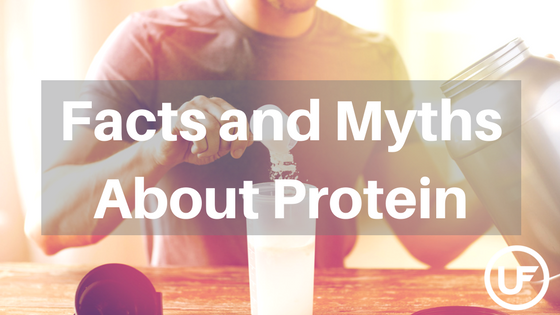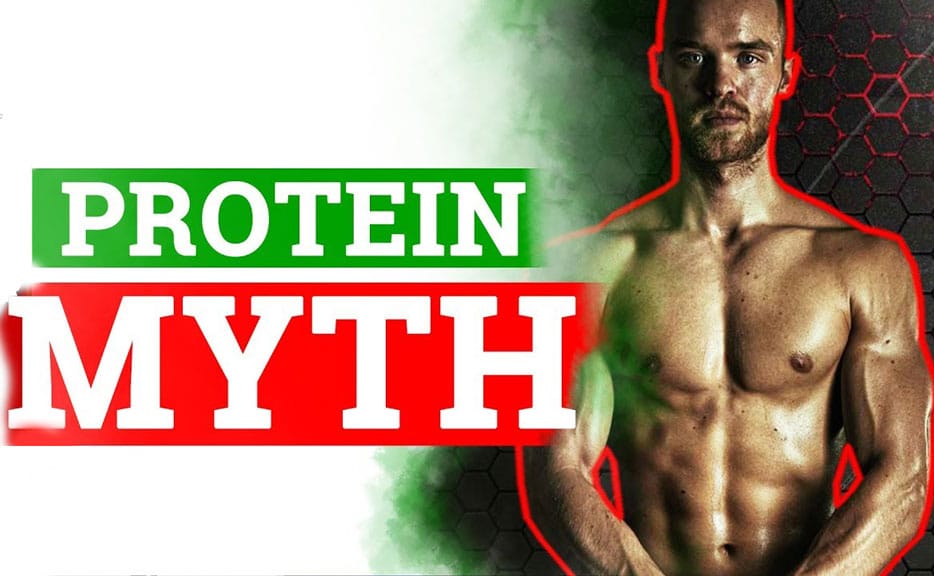The Vegan’s Guide To Protein: Myths And Facts

Executive Summary

This article aims to dispel common myths about protein and offer a comprehensive guide to obtaining adequate protein on a vegan diet. It will cover the importance of protein, address frequently asked questions about vegan protein sources, and outline a strategic approach to ensure optimal protein intake.

Introduction
A common misconception about veganism is the perceived difficulty in obtaining adequate protein. While it’s true that animal products are traditionally associated with protein, numerous plant-based foods offer substantial amounts of this vital nutrient. This guide demystifies the protein dilemma for vegans, empowering you with knowledge and practical strategies to build a strong and healthy body.
Frequently Asked Questions
1. Is it possible to get enough protein on a vegan diet?
Absolutely! Many plant-based foods are excellent sources of protein. It’s just a matter of making informed choices and incorporating diverse protein sources into your diet.
2. Do vegans need to consume more protein than non-vegans?
While the recommended daily protein intake is generally similar for vegans and non-vegans, it’s essential to monitor your individual needs based on your activity level and overall health.
3. What happens if I don’t get enough protein?
Protein deficiency can lead to various health issues, including muscle loss, fatigue, weakened immune system, and impaired wound healing.
Plant-Based Protein Powerhouses
Soy
Soy is a complete protein, meaning it contains all nine essential amino acids. It’s versatile and can be consumed in various forms:
- Tofu: A versatile protein source, tofu can be used in stir-fries, curries, salads, and even desserts.
- Tempeh: A fermented soybean product, tempeh is a great source of protein and fiber, with a slightly earthy taste.
- Soy milk: A readily available and convenient alternative to dairy milk, soy milk is fortified with calcium and vitamin D.
- Edamame: These immature soybeans are a delicious and nutritious snack or side dish, offering a good dose of protein.
Legumes
Legumes, including beans, lentils, and peas, are excellent sources of protein and fiber.
- Black beans: A staple in many cuisines, black beans are rich in protein, iron, and fiber.
- Lentils: These versatile legumes can be added to soups, stews, salads, or even used as a meat substitute in vegetarian burgers.
- Chickpeas: A powerhouse of nutrients, chickpeas can be enjoyed roasted, in hummus, or added to salads and curries.
- Peas: Sweet and nutritious, peas can be eaten fresh, frozen, or added to dishes like pasta and stir-fries.
Nuts and Seeds
Nuts and seeds are packed with protein, healthy fats, and fiber.
- Almonds: A good source of protein, almonds also provide vitamin E, magnesium, and fiber.
- Cashews: Delicious and creamy, cashews offer a good dose of protein and monounsaturated fats.
- Pumpkin seeds: Rich in protein, magnesium, and zinc, pumpkin seeds are a healthy and flavorful snack.
- Sunflower seeds: An excellent source of protein, vitamin E, and selenium, sunflower seeds are often added to salads and trail mixes.
Whole Grains
While not as protein-rich as other sources, whole grains provide a decent amount of protein and offer a wealth of other nutrients.
- Quinoa: A complete protein, quinoa is also high in fiber, iron, and magnesium.
- Brown rice: A staple in many diets, brown rice offers a good dose of protein and complex carbohydrates.
- Oatmeal: A hearty and filling breakfast option, oatmeal provides protein, fiber, and other essential nutrients.
- Whole wheat bread: A more nutritious alternative to white bread, whole wheat bread offers a modest amount of protein.
Building A Protein-Packed Vegan Diet
Plan Your Meals
Create a meal plan that incorporates diverse protein sources throughout the day. Aim for at least one serving of protein at each meal.
Focus on Protein-Rich Snacks
Keep protein-rich snacks handy for those moments when you need a quick and satisfying bite. Examples include nuts, seeds, protein bars, or a handful of dried beans.
Prioritize Plant-Based Protein Powders
Vegan protein powders are convenient and effective ways to boost your protein intake. Choose options derived from soy, pea, rice, or hemp.
Supplement If Necessary
While not a replacement for a balanced diet, supplementing with a vegan protein powder can be beneficial for athletes, those with high protein needs, or those struggling to meet their protein goals through food alone.
Listen To Your Body
Pay attention to your body’s signals. If you experience persistent fatigue, muscle weakness, or other signs of protein deficiency, consult with a healthcare professional.
Conclusion
Contrary to popular belief, a vegan diet can easily provide ample protein. By incorporating diverse plant-based sources, planning meals thoughtfully, and considering supplementation as needed, vegans can ensure optimal protein intake for a healthy and active lifestyle.
Keyword Tags
- Vegan protein
- Plant-based protein
- Protein sources
- Vegan diet
- Vegan nutrition